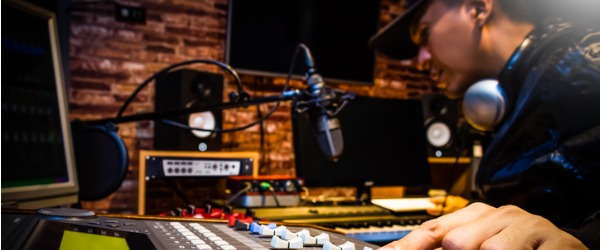What is a Recording Engineer?
A recording engineer is someone who sets up and operates recording equipment and is responsible for creating, modifying and producing music. He or she is an expert in everything audio.
This type of work draws on many disciplines like acoustics, psychoacoustics, electrical engineering and music. The equipment a recording engineer typically uses includes digital recorders, listening equipment, mixing boards and sophisticated computer programs and software. The recording engineer must carefully balance art and science, and be able to communicate and understand the artist's needs in order to make their musical dreams a reality.
What does a Recording Engineer do?

Using various techniques, a recording engineer will perform a wide range of tasks like noise control, acoustical design, and sound level setting. Depending on their project role, a recording engineer will be called upon to perform tasks on any level, from the basics of microphone placement to the more advanced aspects of sound waves and sound wave integration.
Translating analog to digital sound and synchronizing sounds to visual media is also an important aspect of the work of a recording engineer. In the studio, he or she is responsible for not only recording but also editing, mixing and mastering the sound recording. They must also be familiar with design, installation and operation of equipment for sound recording, reinforcement and broadcasting.
Although they should be educated in the overall process of recording, typically a recording engineer will specialize in one or two steps in the total sound recording process. The four steps involved in the production of a recording are: recording, editing, mixing and mastering.
There are many career paths in sound recording:
Studio Engineer
- works within a studio facility, and can work with a producer or on their own
Recording Engineer
- specializes in only the recording of sound
Assistant Engineer
- an entry level or training position in larger studios and usually assists full-time engineers with microphone setups and sometimes rough mixes
Mixing Engineer
- who creates mixes of multi-track recordings (often a commercial record is recorded at one studio and later mixed by different engineers in other studios)
Mastering Engineer
- who makes any final adjustments to the overall sound of the recording before commercial duplication
Game Audio Designer/Engineer
- who deals with all sounds included in game development
Audio Post Engineer
- a person who edits audio for film and/or television
What is the workplace of a Recording Engineer like?
Recording engineers can work in a variety of settings, depending upon whether they work for a large studio or are self-employed. Often they work with other creative individuals in a collaborative work environment. Flexibility, a positive attitude, reliability and a willingness to learn are essential when working on a film or game.
With the increased use of computers and software designed to manipulate audio feeds, sound recording is becoming more and more mobile and large amounts of time are not required in a studio, but a thorough knowledge of the trade is.
Recording Engineers are also known as:
Music Recording Engineer